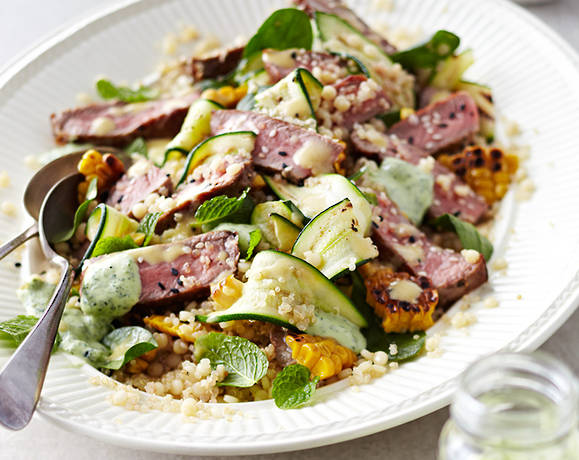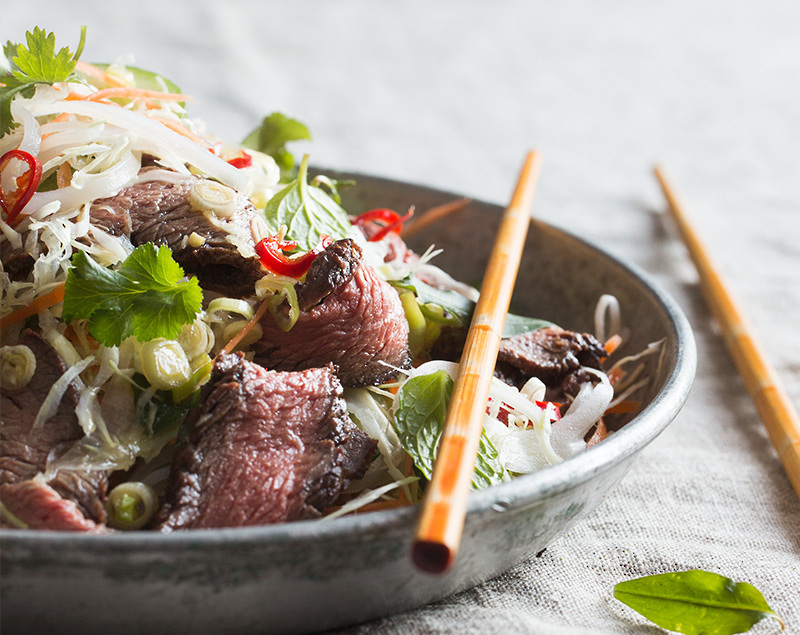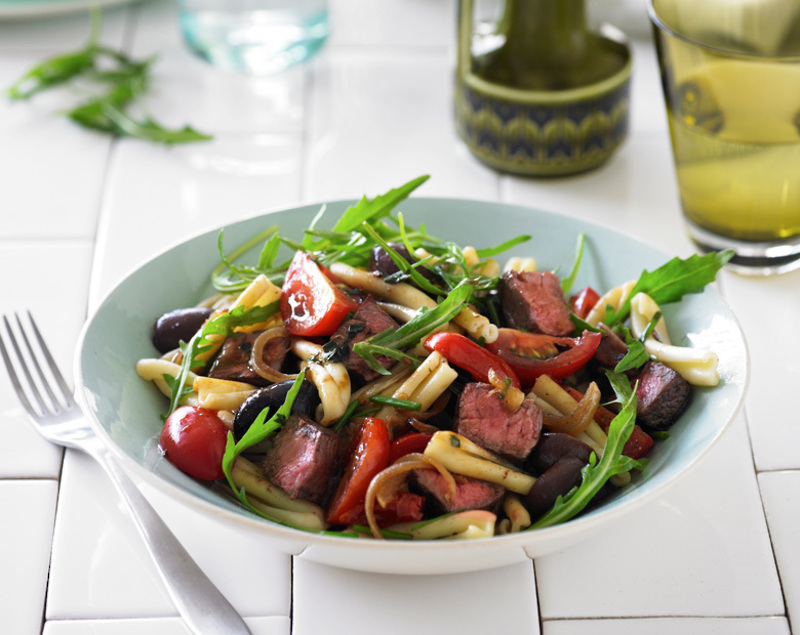Plant-based eating – not the new trend it makes out to be
Rocking into 2019 we are often looking for a fresh start which might include a new dietary regime, and if you’re checking out social media for ideas then no doubt ‘Plant-based eating’ is popping up at every click. In fact you’ll find millions of posts under the hashtag #plantbased. Now this may seem a strange thing to read on a Beef + Lamb New Zealand website, but if you’re wanting to make small sustainable changes to eat healthier, don’t overlook plant-based eating because it doesn’t have to mean becoming a vegetarian or vegan and giving up moderate amounts of meat and dairy foods.
There are no hard and fast rules that say that a plant-based eater must be plant-based only. You can be a plant-based eater and still eat meat and animal-based protein, some like to term themselves flexitarian if they aren’t eating animal protein foods daily. If you focus on having at least three-quarters of your diet derived from plant-based foods and eat from a variety of protein sources, which can include both animal and plant-based proteins you’re well on the way to having a healthy and more sustainable diet.
The focus on a more plant-based diet is really nothing new as the general consensus from New Zealand registered nutritionists and dietitians has always been to eat more vegetables, fruit and wholegrains and less processed foods. However, a movement has been created around plant-based eating due to an increased global awareness of what we are eating, with environmental, ethical, health and social factors driving this trend.
In regards to environmental awareness, here in Aotearoa with our grass-fed animals we have a relatively efficient and sustainable farming system, so eating moderate amounts of local New Zealand beef and lamb means we can still play a part in an environmentally-friendly lifestyle. The New Zealand beef and lamb sector have also developed a long-term environment strategy prioritising healthy productive soils, thriving bio-diversity, reducing carbon emissions and cleaner water, demonstrating the farmers are playing their part as caretakers of our land to leave it in better condition for generations to follow
From the production perspective, New Zealand beef and lamb is an efficient source of nutrients, turning grass from hilly pastures into quality protein, iron and zinc to help our kids grow and develop and for all of our general well-being to keep us energised and immune-strong. Served alongside plenty of plant foods like veges, providing excellent sources of vitamins, minerals and dietary fibre required for gut health, means it’s a win-win. Together they make a satisfying and nutritious healthy, balanced meal.
So how much is a moderate amount of lean read meat? For an adult the current nutrition recommendation is 350-500g cooked lean red meat a week (up to 700-750g raw weight), this looks like red meat portions the size of a deck of cards about 3-4 times per week, or in some cases a bigger serve might mean twice a week. This allows for meat-free meals during the week and more dietary variety overall
A predominantly plant-based diet with a variety of foods, including animal-based protein means your body is utilising a range of nutrients required for good health. Of course we’re going to suggest some of our recipes because we know they pass the taste and nutrition test, with a focus on vegetables alongside a moderate portion of lean red meat. Remember recipes are only a guide so feel free to add extra veges or wholegrains to suit your tastes, and don’t forget to use up leftovers wherever possible to keep food waste at bay, another factor in doing your bit to take the pressure off our planet
Check out our infographic How does red meat fit into plant-based eating?




